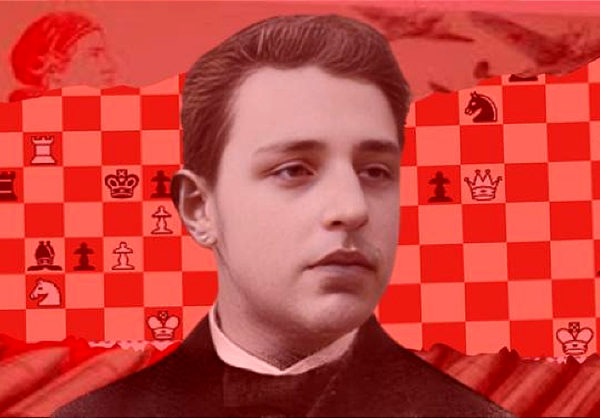The strange case of a Nazi who became an Israeli hitman

On September 11, 1962, a German scientist vanished. Heinz Krug had been at his office, and he never came home. He was one of dozens of Nazi rocket experts who had been hired by Egypt to develop advanced weapons for that country. Based on interviews with former Mossad officers and with Israelis who have access to the Mossad’s archived secrets from half a century ago, it appears that Krug was murdered as part of an Israeli espionage plot to intimidate the German scientists working for Egypt. Moreover, the most astounding revelation is the Mossad agent who fired the fatal gunshots: Otto Skorzeny, one of the Israeli spy agency’s most valuable assets, was a former lieutenant colonel in Germany’s Waffen-SS and one of Adolf Hitler’s personal favorites. The Führer, in fact, awarded Skorzeny the army’s most prestigious medal, the Knight’s Cross of the Iron Cross, for leading the operation that rescued his friend Benito Mussolini.
Iraqi journalist who threw shoes at Bush says his only regret is he "only had two shoes"
Two decades after the U.S. led the invasion of Iraq, one of the most memorable moments for many in the region remains the 2008 news conference in Baghdad when an Iraqi journalist stood up and hurled his shoes at then-U.S. President George W. Bush. As the U.S. leader spoke alongside Iraqi Prime Minister Nouri al-Maliki, he was forced to duck the flying shoes as the journalist shouted: "This is a farewell kiss from the Iraqi people, you dog!" The man was quickly pounced on by security forces and removed from the room, and says he was subsequently jailed and beaten for his actions. "The only regret I have is that I only had two shoes," Muntazer al-Zaidi, who expressed the feelings of many Iraqis at the time, told CBS News, 20 years after the beginning of the U.S.'s campaign of "shock and awe."

How did octopuses get so smart?
In 2008 the staff at Sea Star Aquarium in Coburg, Germany, had a mystery on their hands. Two mornings in a row, they had arrived at work to find the aquarium eerily silent: the entire electrical system had shorted out. Each time they would reset the system only to find the same eerie silence greeting them the next morning. So on the third night a couple of staff members kept vigil, taking turns to sleep on the floor. Sure enough the perpetrator was apprehended: Otto the octopus. He had crawled out of his tank and, using his siphon like a fire hose, aimed it at the overhead light. Apparently it annoyed him or maybe he was just bored. As director Elfriede Kummer told The Telegraph, “Otto is constantly craving for attention and always comes up with new stunts… Once we saw him juggling hermit crabs in his tank”. Some researchers who study the octopus and its smart cousins, the cuttlefish and squid, talk about a ‘second genesis of intelligence’ – a truly alien one that has little in common with the mammalian design.

The odyssey of a transgender economist
An economist by training, Deirdre, it is no exaggeration to say, is one of the most powerful intellects of our time. Her notion of the Great Enrichment shows how humans, after being stuck in poverty for 3,000 centuries, suddenly experienced a 3,000% improvement in their incomes 250 years ago as the ideas of Enlightenment spread. She has made seminal contributions, including price theory and even the rhetoric of economics. She also wrote a hilarious essay, Economical Writing, which became the Strunk and White for economists who want to be effective writers. But Deirdre began life as Donald in Ann Arbor in 1942. Then, 50 years later, married with children, she took the radical step of opting for a sex change operation. In a memoir, she writes: "As Donald aged 13 or 14 waited for sleep in his bed," she wrote, "he would fantasize about two things. Please, God, please ...Tomorrow when I wake up: I won't stutter... And I'll be a girl.”

Economist Tyler Cowen uses ChatGPT to interview Jonathan Swift, who died in 1745
Tyler writes: "GPT Swift discusses his support for the Church of Ireland, his shift from the Whigs to the Tories, and his opposition to William Wood’s copper coinage in Ireland. He also talks about his works, including Gulliver’s Travels and A Modest Proposal, and his skepticism of moral and intellectual progress. Swift addresses rumors about his relationship with Esther Johnson and his fascination with scatological themes in his works. He also discusses his early life in England, his intellectual mentor Sir William Temple, and his jovial attitude towards death. First question: Given that you are so skeptical of religious doctrine, why did you nonetheless support a state church, namely the Church of Ireland?"

Why are barns usually painted red?
Barns come in many shapes and sizes, from the classic English A-frame gabled roof to the American double-pitched gambrel roof (shown above). The Shakers built circular structures, and the curved Gothic arch-roofed barn came to America via Europe. When you picture a barn in your mind, chances are it is red. It’s become one of the quintessential icons of American architecture. There was a time when barns remained unpainted or unstained. Farmers learned that a protective coating could extend the life of a barn by preventing rot and decay. Applying a mixture of linseed oil, milk, lime and turpentine to the unfinished wooden planks helped to preserve their buildings. Along the way, someone found that adding rust (ferrous oxide) halted the growth of mosses and fungi – two organisms that gradually erode wood. It was iron in the rust that gave the mixture its red colour. And the intensity of red depended on the amount of rust added. The materials for this easy-to-create concoction were readily available and inexpensive.

A smart boy goes to the market
Smart dog.. 😊 pic.twitter.com/BsXVASwQGe
— Buitengebieden (@buitengebieden) March 30, 2023



